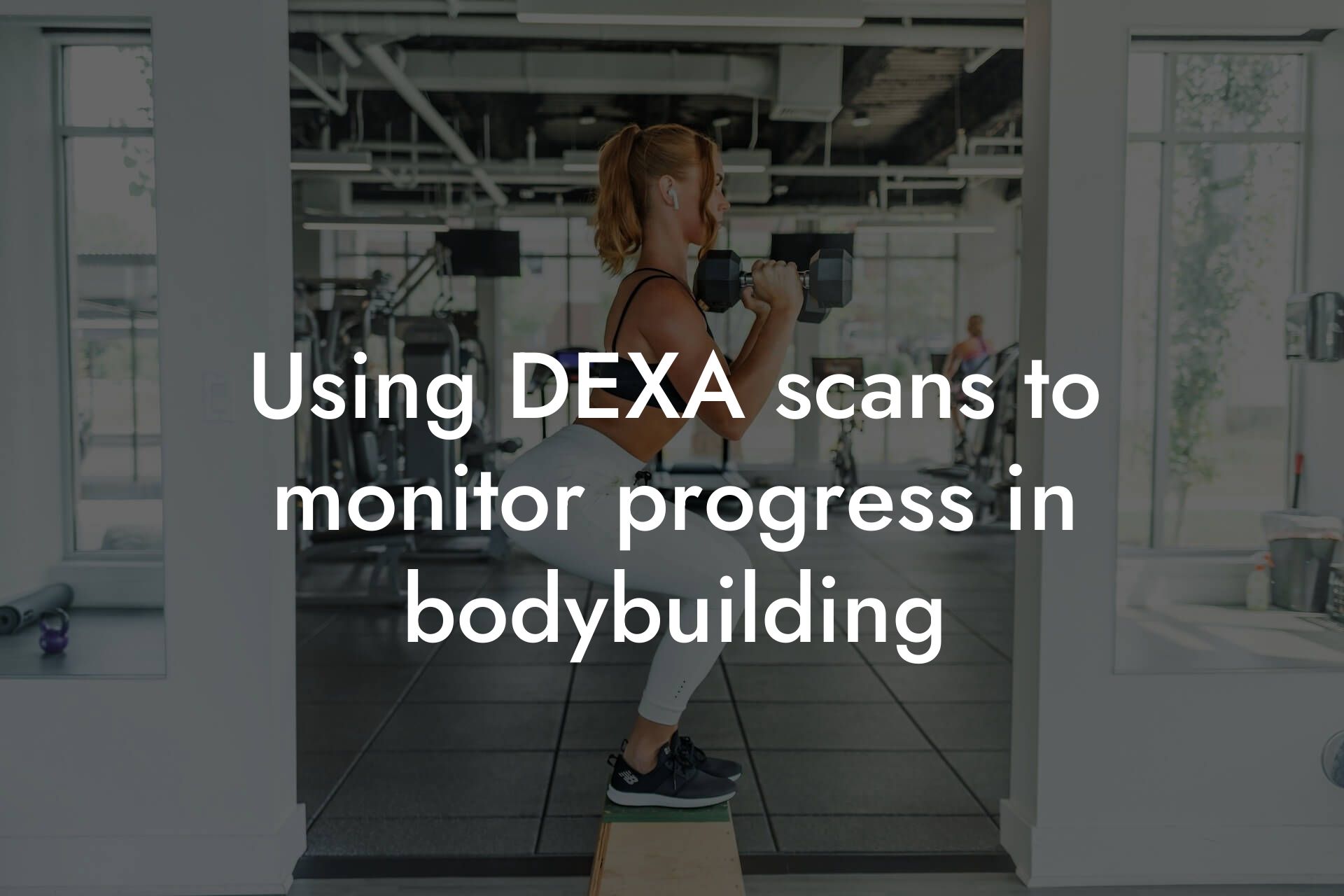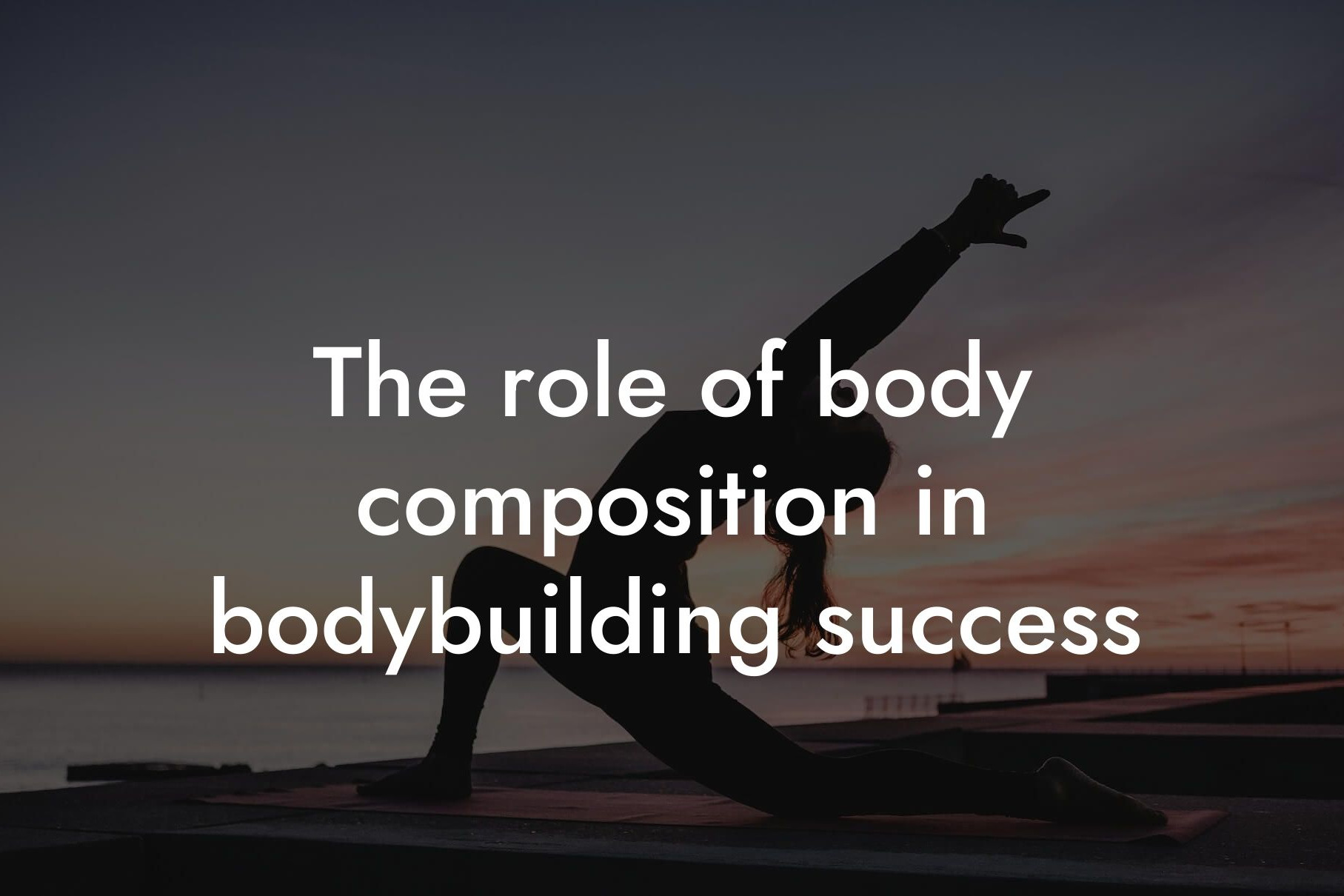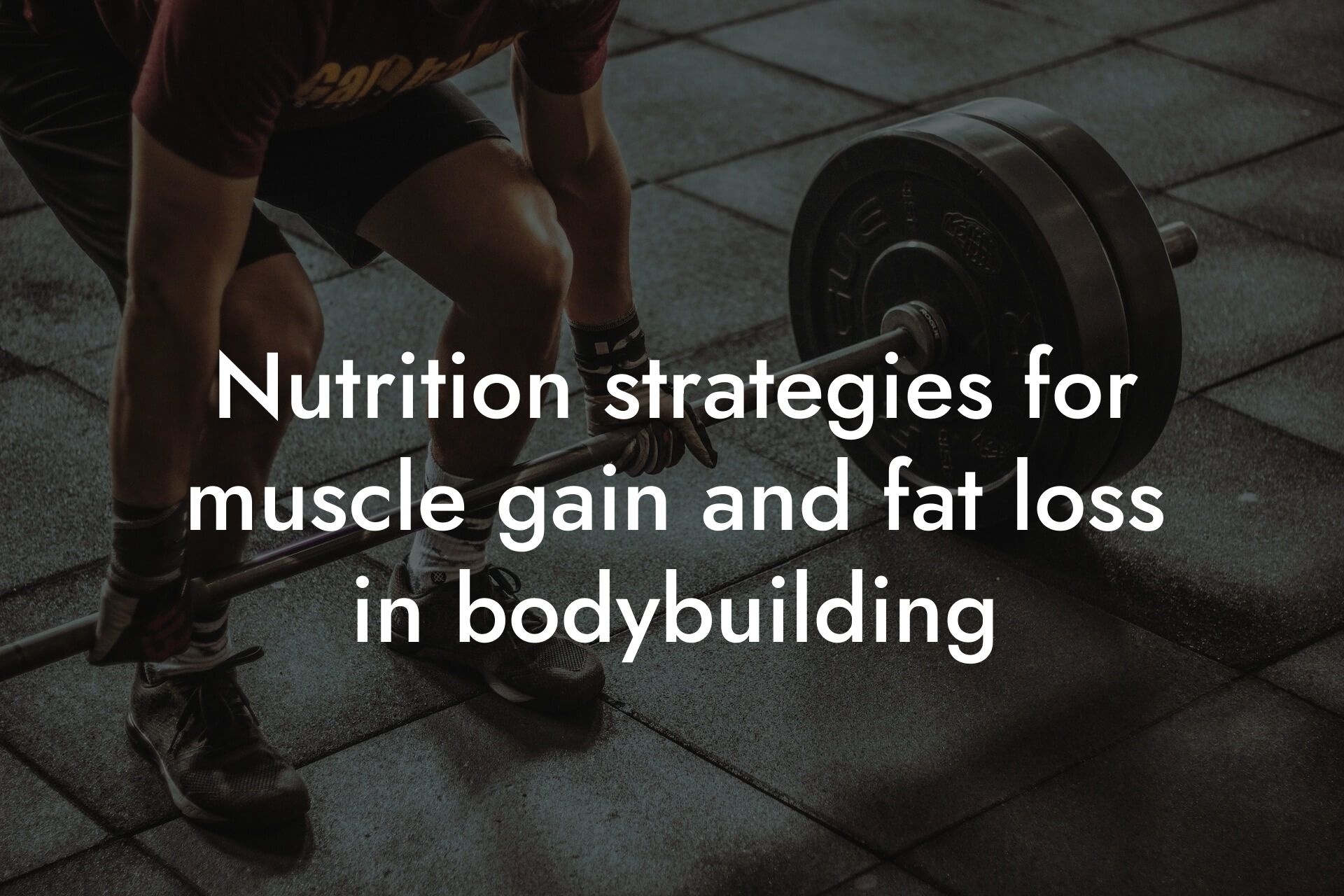As a high-earning professional interested in maintaining a healthy physique, you understand the importance of prioritizing your overall health and wellness. One crucial aspect of this is bone density, which plays a vital role in injury prevention and overall athletic performance. In this article, we'll delve into the world of bone density and injury prevention in bodybuilding, providing you with a comprehensive understanding of this critical topic.
Table of Contents
What is Bone Density?
Bone density refers to the measure of the amount of minerals, such as calcium and phosphorus, present in your bones. It's an essential indicator of bone health, as it determines the strength and durability of your skeletal system. Peak bone density is typically achieved in early adulthood, around the age of 30, and then gradually declines with age. However, this decline can be slowed down or even reversed with proper nutrition, exercise, and lifestyle habits.
Why is Bone Density Important for Bodybuilders?
As a bodybuilder, you're likely no stranger to heavy weightlifting and intense training regimens. While these exercises can help build muscle mass and strength, they can also put excessive stress on your bones, leading to increased risk of injury and decreased bone density. Low bone density can result in a higher likelihood of fractures, osteoporosis, and other musculoskeletal issues, which can significantly impact your training and overall health.
How Does Bodybuilding Affect Bone Density?
While bodybuilding can have both positive and negative effects on bone density, the overall impact depends on several factors, including your training habits, nutrition, and lifestyle. On the positive side, resistance training and weightlifting can help stimulate bone growth and increase bone density. However, if you're not careful, excessive training and inadequate nutrition can lead to decreased bone density and increased risk of injury.
Some common bodybuilding practices that can negatively impact bone density include:
- Insufficient calcium and vitamin D intake
- Inadequate rest and recovery time
- Excessive use of anabolic steroids and other performance-enhancing drugs
- Imbalanced training regimens that neglect lower-body exercises
How to Improve Bone Density as a Bodybuilder
Luckily, there are several ways to improve bone density as a bodybuilder. Here are some evidence-based tips to get you started:
- Consume a balanced diet rich in calcium and vitamin D
- Incorporate weight-bearing exercises, such as squats and deadlifts, into your training regimen
- Make sure to get adequate rest and recovery time to allow your bones to repair and rebuild
- Consider incorporating exercises that target your core and lower back, such as planks and rows
- Avoid excessive use of anabolic steroids and other performance-enhancing drugs
Injury Prevention Strategies for Bodybuilders
In addition to improving bone density, there are several injury prevention strategies that bodybuilders can implement to reduce their risk of injury. These include:
- Warming up properly before training and cooling down afterwards
- Using proper form and technique when lifting weights
- Incorporating stretching and foam rolling into your routine
- Listening to your body and taking regular breaks to rest and recover
- Working with a qualified trainer or coach to develop a personalized training plan
The Role of DEXA Scans in Bone Density Assessment
As a high-earning professional, you understand the importance of investing in your health and wellness. One valuable tool in assessing bone density is the DEXA (Dual-Energy X-ray Absorptiometry) scan. This non-invasive, pain-free test uses X-rays to measure bone density in various parts of the body, including the hips, spine, and total body.
At Tano Performance Group, we offer comprehensive DEXA scans as part of our complete body assessment package. Our state-of-the-art DEXA machine provides accurate and reliable results, allowing you to gain a deeper understanding of your bone density and overall health.
Bone density and injury prevention are critical components of a successful bodybuilding regimen. By understanding the importance of bone density, implementing evidence-based strategies to improve it, and incorporating injury prevention techniques into your training, you can optimize your overall health and wellness. Remember, investing in your health is investing in your future – take control of your bone density and injury prevention today with Tano Performance Group.
Frequently Asked Questions
What is bone density and why is it important in bodybuilding?
Bone density refers to the measure of how dense and strong your bones are. In bodybuilding, maintaining healthy bone density is crucial as it helps prevent injuries, supports muscle growth, and reduces the risk of osteoporosis and fractures. As you age, your bone density naturally decreases, making it essential to take proactive steps to maintain strong bones.
How does bodybuilding affect bone density?
Bodybuilding can have both positive and negative effects on bone density. On the one hand, resistance training and weightlifting can help increase bone density by stimulating bone growth and strengthening muscles. On the other hand, excessive weightlifting, poor form, and inadequate nutrition can lead to bone loss and decreased density.
What are the risks of low bone density in bodybuilding?
Low bone density in bodybuilding increases the risk of injuries, such as fractures, osteoporosis, and stress fractures. It can also lead to chronic pain, limited mobility, and decreased athletic performance. Furthermore, low bone density can make it challenging to achieve your physique goals, as weak bones may not be able to support muscle growth.
How can I maintain healthy bone density as a bodybuilder?
To maintain healthy bone density, focus on a balanced diet rich in calcium, vitamin D, and protein. Engage in regular weightlifting and resistance training exercises, and incorporate low-impact aerobic activities, such as cycling or swimming, to stimulate bone growth. Additionally, get enough sleep, manage stress, and avoid excessive caffeine and alcohol consumption.
What are the best exercises for improving bone density?
The best exercises for improving bone density are weight-bearing and resistance exercises, such as squats, deadlifts, lunges, and leg press. These exercises target multiple muscle groups and stimulate bone growth in the hips, spine, and legs. Additionally, incorporate exercises that target the core and upper body, such as push-ups, rows, and shoulder presses.
How often should I exercise to improve bone density?
Aim to exercise at least three to four times per week, with a focus on weightlifting and resistance training. Include exercises that target different muscle groups and bones, and vary your routine to avoid plateaus and prevent overuse injuries.
What is the role of nutrition in maintaining healthy bone density?
Nutrition plays a crucial role in maintaining healthy bone density. Focus on consuming a balanced diet rich in calcium, vitamin D, protein, and other essential nutrients. Include foods such as dairy products, leafy greens, nuts, and fatty fish in your diet, and consider supplementing with calcium and vitamin D if necessary.
How much calcium do I need to consume daily?
The recommended daily intake of calcium varies by age and sex. Generally, adult men require 1,000-1,200 mg of calcium per day, while adult women require 1,000-1,500 mg per day. Consult with a healthcare professional or registered dietitian to determine your individual calcium needs.
What is the importance of vitamin D in bone health?
Vitamin D is essential for calcium absorption and bone growth. It helps regulate calcium levels in the blood and promotes bone mineralization. Aim to consume 600-800 IU of vitamin D per day, and consider supplementing if you have limited sun exposure or are deficient.
Can I take supplements to improve bone density?
Yes, certain supplements can help improve bone density. Calcium and vitamin D supplements are commonly recommended, but you may also consider supplements containing omega-3 fatty acids, vitamin K, and magnesium. However, always consult with a healthcare professional before adding new supplements to your regimen.
How can I reduce my risk of injury as a bodybuilder?
To reduce your risk of injury, focus on proper form and technique, warm up and cool down properly, and listen to your body. Incorporate injury prevention exercises, such as stretching and foam rolling, into your routine, and take regular breaks to rest and recover.
What are the most common injuries associated with bodybuilding?
The most common injuries associated with bodybuilding include muscle strains, tendonitis, and stress fractures. These injuries often occur due to poor form, overtraining, and inadequate recovery time.
How can I prevent stress fractures?
To prevent stress fractures, incorporate exercises that target the bones, such as weight-bearing and resistance exercises. Wear proper footwear, avoid overtraining, and incorporate rest days into your routine. Additionally, maintain a healthy diet rich in calcium and vitamin D.
What is the role of genetics in bone density?
Genetics play a significant role in bone density, with certain genetic factors influencing bone growth and development. However, lifestyle factors, such as diet and exercise, can also impact bone density and help mitigate genetic risks.
Can I improve my bone density at any age?
Yes, you can improve your bone density at any age. While peak bone density is typically achieved in early adulthood, regular exercise and a balanced diet can help maintain or improve bone density throughout life.
How can I monitor my bone density?
You can monitor your bone density through regular DEXA (dual-energy X-ray absorptiometry) scans, which measure bone mineral density. Consult with a healthcare professional to determine the best frequency for monitoring your bone density.
What are the benefits of maintaining healthy bone density?
Maintaining healthy bone density can help prevent injuries, reduce the risk of osteoporosis and fractures, and support overall health and well-being. It can also improve athletic performance, increase confidence, and enhance overall quality of life.
How does bodybuilding affect bone density in older adults?
Bodybuilding can be beneficial for older adults, as it can help maintain or improve bone density, reduce the risk of osteoporosis and fractures, and improve overall health and well-being. However, older adults should consult with a healthcare professional to develop a safe and effective exercise program.
Can I still bodybuild if I have low bone density?
Yes, you can still bodybuild if you have low bone density, but it's essential to take precautions to avoid injuries and promote bone growth. Consult with a healthcare professional to develop a customized exercise program that addresses your individual needs and limitations.
How can I incorporate bone density exercises into my existing workout routine?
Incorporate bone density exercises into your existing workout routine by adding weight-bearing and resistance exercises, such as squats, deadlifts, and lunges. You can also modify your routine to include exercises that target different muscle groups and bones.
What are the long-term benefits of maintaining healthy bone density?
The long-term benefits of maintaining healthy bone density include reduced risk of osteoporosis and fractures, improved athletic performance, and enhanced overall health and well-being. It can also improve quality of life, increase confidence, and support overall physical and mental health.
How can I get started with a bone density exercise program?
Get started with a bone density exercise program by consulting with a healthcare professional or certified personal trainer. They can help you develop a customized program that addresses your individual needs and goals, and provides guidance on proper form and technique.
Here are some related articles you might love...
- Using DEXA scans to monitor progress in bodybuilding
- The role of body composition in bodybuilding success
- Nutrition strategies for muscle gain and fat loss in bodybuilding
- The importance of muscle symmetry in bodybuilding
- Recovery strategies for amateur bodybuilders
- Reducing body fat for competition in bodybuilding
- Strength training programs for amateur bodybuilders
- Off-season bulking and cutting cycles for bodybuilders
- How to optimize muscle growth with proper nutrition
Zak Faulkner
Zak Faulkner is a leading authority in the realm of physical health and body composition analysis, with over 15 years of experience helping professionals optimise their fitness and well-being. As one the experts behind Tano Performance Group, Zak has dedicated his career to providing in-depth, science-backed insights that empower clients to elevate their physical performance and overall health.
With extensive knowledge of DEXA technology, Zak specializes in delivering comprehensive body assessments that offer precise data on body fat, muscle mass, bone density, and overall physique. His expertise enables individuals to make informed decisions and achieve their fitness goals with accuracy and confidence. Zak’s approach is rooted in a deep understanding of human physiology, combined with a passion for helping clients unlock their full potential through personalised strategies.
Over the years, Zak has earned a reputation for his commitment to excellence, precision, and client-focused service. His guidance is trusted by top professionals who demand the best when it comes to their health. Whether advising on fitness programs, nutritional strategies, or long-term wellness plans, Zak Faulkner’s insights are a valuable resource for anyone serious about taking their health and fitness to the next level.
At Tano Performance Group, Zak continues to lead our Content Team revolutionising how professionals approach their physical health, offering unparalleled expertise that drives real results.




